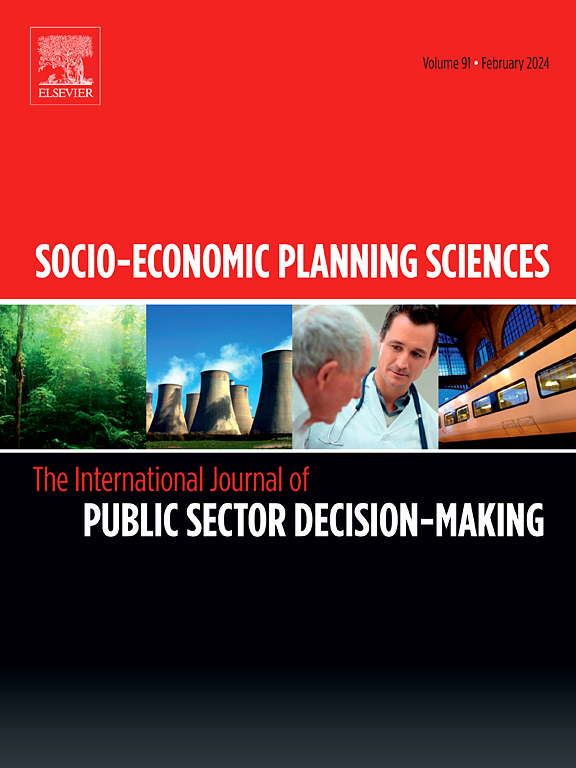An innovative patient clustering method using data envelopment Analysis–Discriminant analysis and artificial neural networks: A case study in healthcare systems
Abstract
A major lesson healthcare managers learned from the COVID-19 outbreak is the need for more effective patient classification and medical resource allocation for future pandemics. In their view, hospitalization mortality could be greatly reduced if more effective systems for patient classification were in place before the outbreak to evaluate and assign treatment facilities. This study presents a scalable patient clustering approach using a Self-Organizing Map (SOM) of the Artificial Neural Network (ANN) to cluster patients for appropriate treatment allocation. The patients’ membership is forecasted using Data Envelopment Analysis–Discriminant Analysis (DEA-DA). The objectives of this research are to develop a flexible framework that healthcare systems can adopt to cluster patients based on specific testing criteria from medical records and to assign them to suitable medical centers with appropriate treatment resources. This method aims to enhance healthcare system efficiency by ensuring patients with severe illnesses receive care at well-equipped centers, while those with milder symptoms are directed to other suitable facilities. The approach is scalable and adaptable to any type of widespread illness and aims to increase recovery rates and decrease mortality rates, as confirmed by the case study results.

 求助内容:
求助内容: 应助结果提醒方式:
应助结果提醒方式:


